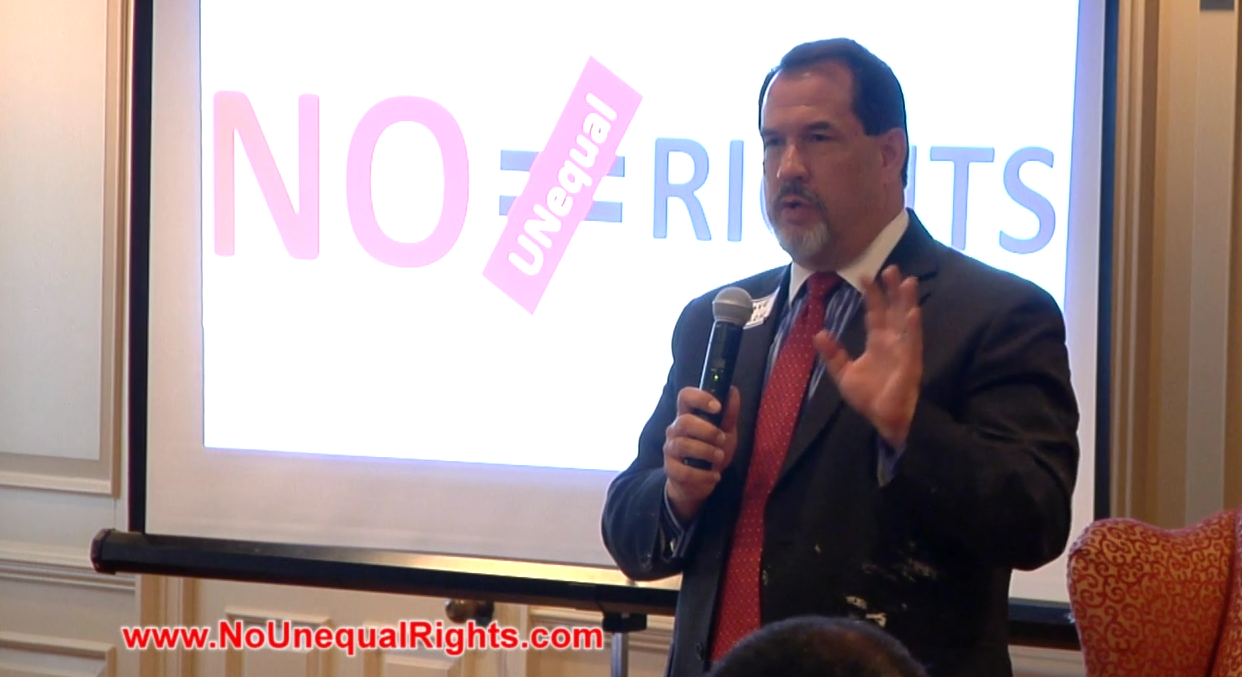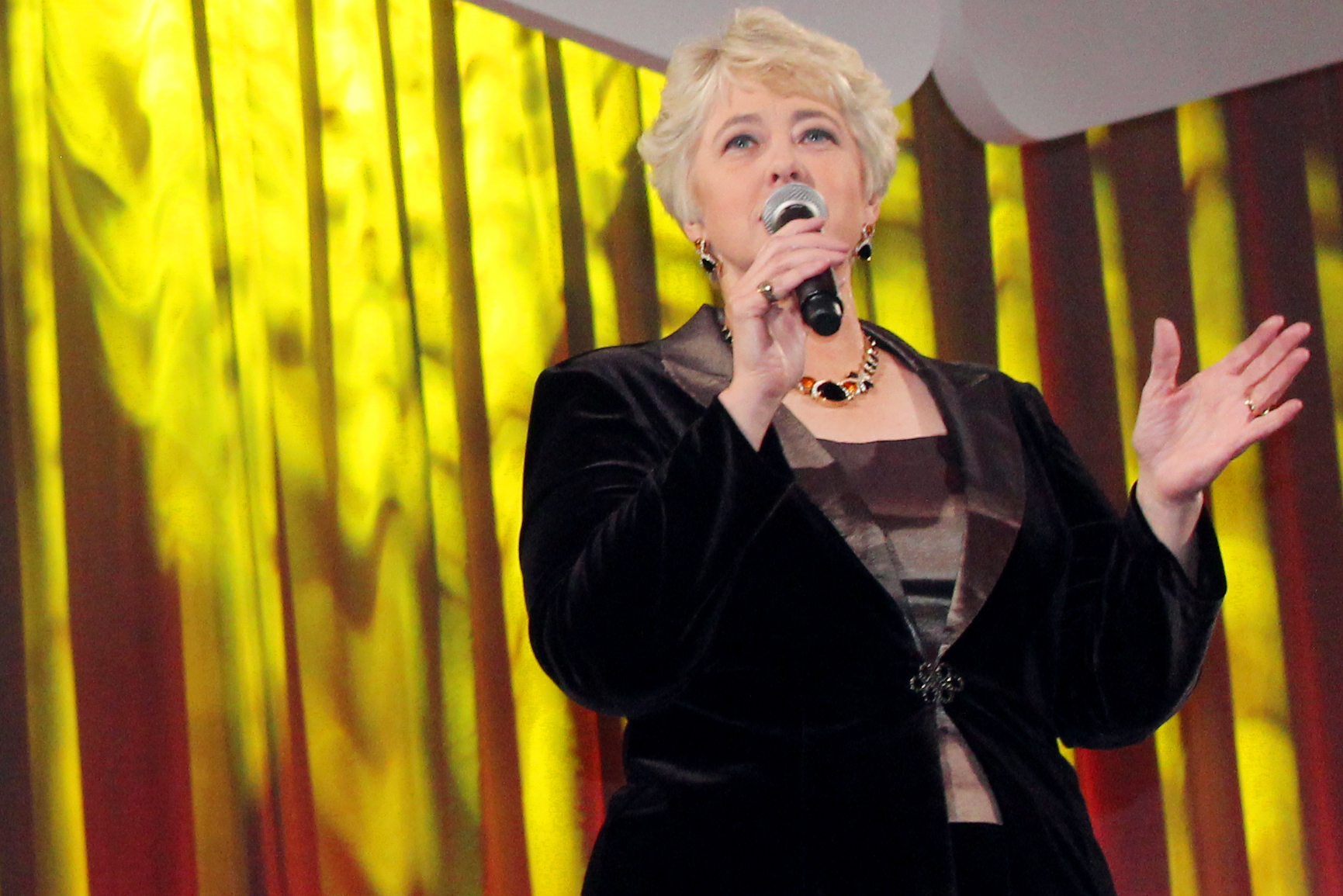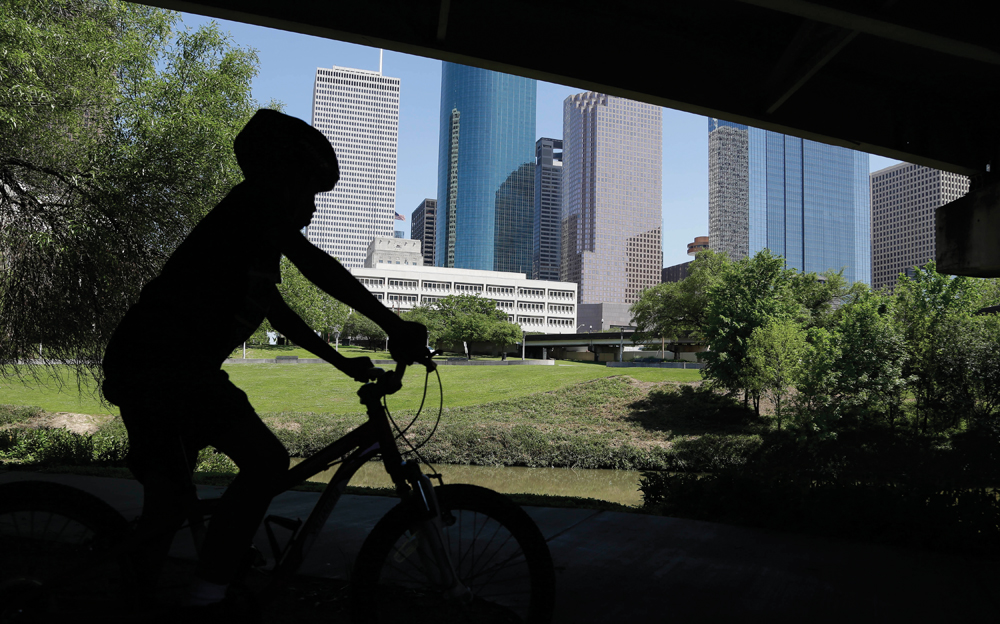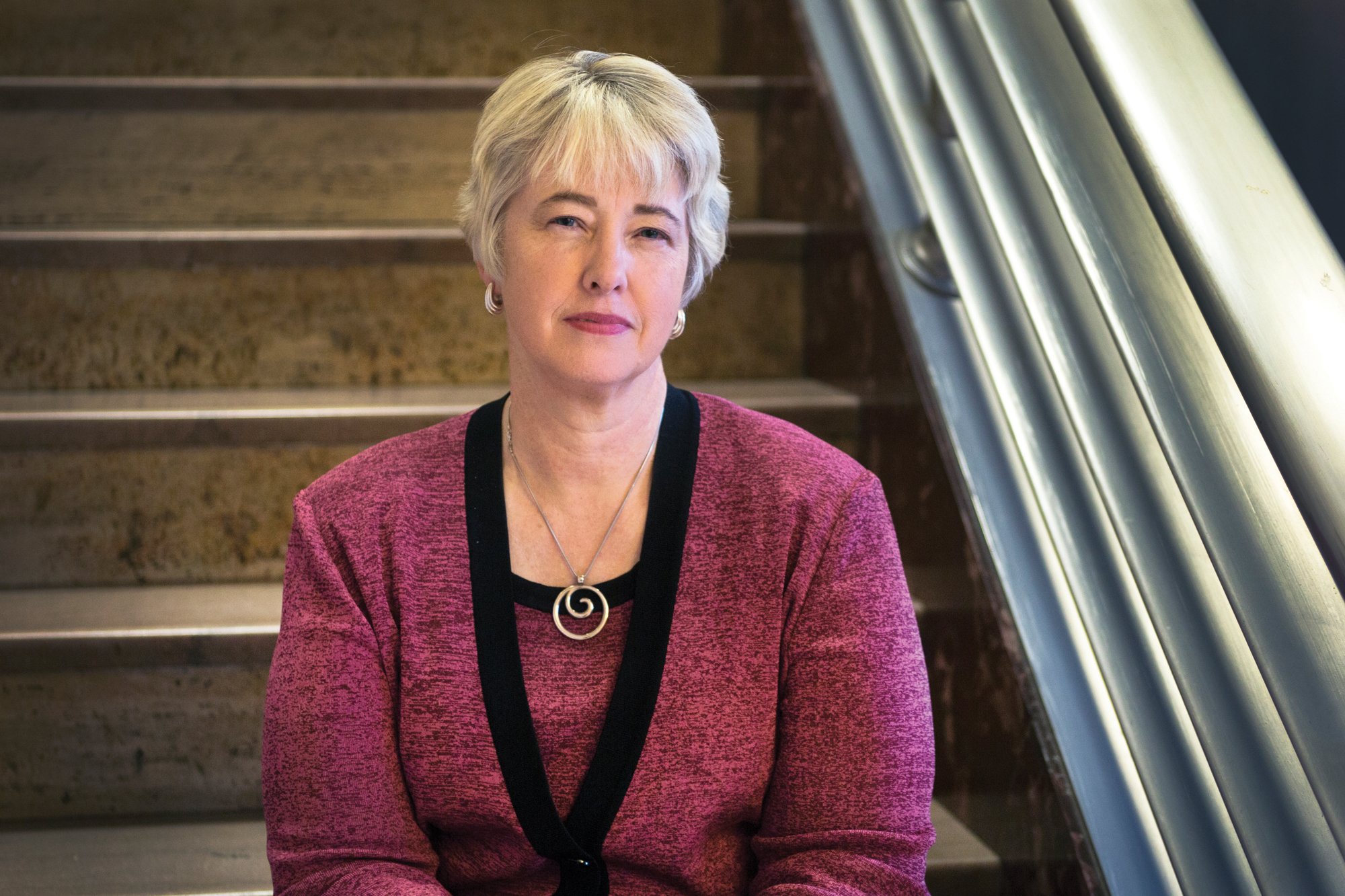
The Interview: Annise Parker
Houston’s former mayor reflects on HERO, use-of-force killings and getting things done.

A version of this story ran in the January 2016 issue.
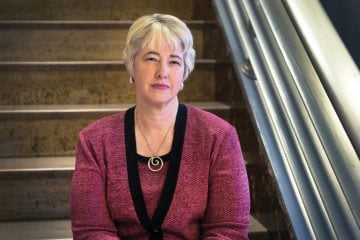
Texas Observer: When people talk about the failure of the Houston Equal Rights Ordinance, some say it’s a sign of people’s attitudes in Houston, and other folks describe it as a failure of campaign politics. What lessons did you take from the vote?
Annise Parker: I’ve been elected nine times citywide as an out lesbian. In the ’80s, I was arguably the most visible lesbian activist in Houston, certainly one of them, and that’s been a part of my political persona. I didn’t sneak up on anybody here. This is overall a tolerant, welcoming city. One in four Houstonians are foreign-born, and in order to make all of that amazing diversity work, we have to have a pretty good attitude about each other.
But it’s certainly a statement about apathy and about the age of our electorate. This is a war that’s already been won. We lost a battle. But the overall war, we know how it’s going to end up. The electorate in the city of Houston averages 68 years old. And until people under age 40 begin to vote in numbers that aren’t embarrassing, until they start to vote at anything approaching their percentage of the population, these kinds of things are going to happen.
The money behind this campaign has been the money behind anti-gay campaigns in Houston for 30 years. Same folks. We were really caught off guard by how little time we had when it finally was moved to the ballot. We had two months to mount a campaign, but for more than a year, the other side had been talking about, “This is a pervert protection bill” and really horrific things like that. You roll your eyes and think, “How could somebody believe that?” Well, they did a really great marketing campaign. You had some respected mega-church clergy members, you had the lieutenant governor of the state of Texas, who know that they’re not telling the truth, but to them the end justifies the means.
TO: Did you anticipate that as mayor, you would champion a human rights issue important to you?
AP: When I was campaigning for mayor six years ago, of the top three candidates in the mayor’s race, I was arguably the most conservative of the three Democrats in terms of fiscal issues. But everybody knew that I spent a lot of years as a lesbian activist, and one of the questions that was put to us on local TV debates was, “Well, you’ve been asked to pass a non-discrimination ordinance for the city of Houston; when do you think you’ll do that?” My opponent, Mr. [Gene] Locke, said, “It’s one of the first things I’ll do; it’s one of the most important things I can do as mayor.” And I said, “I’m more worried about the fiscal crisis going on in the city of Houston. It is something I pledge to do as mayor, but it’ll happen when it’s timely and I’ve dealt with the other crises first.” I knew we’d get there. But having been in that space for so many years, I fully expected it to be an ugly political battle. I knew it wasn’t going to be pleasant. And it wasn’t.
“I’m not interested in being a member of Congress. I like to get up and do things every day. I don’t like to talk about things. I like to fix things.”
AP: Thank you, because somehow the right-wing media is creating this national narrative that I spent five years here just waiting to do this one thing. I came in with an agenda, and I executed on that agenda as much as I could, considering I came in in the middle of the recession. If you were to ask me what am I most proud of as mayor? Fixing our infrastructure funding system and then implementing it. Tackling homelessness. Expanding parks and green space. I love the minutiae of government. I like taking a system and analyzing it and making it better.
TO: These things are cyclical, and if your successor comes in with another big fiscal crisis to deal with, what lessons did you learn from going through that?
AP: I am arguably the most experienced person ever to have become mayor of Houston, having been the only person who served as a council member, served as controller, came right out of the controller’s office and into the mayor’s office. Even though it was a really tough time, [with] a lot of fiscal challenges because of the recession, I did know where a lot of the stress points were and which couch cushions I could look under. I’m also a big believer in the use of technology, and the better data you have, the better decisions you can make. We really didn’t have modern management information tools, and it’s taken a while to get there. But if you go on the city’s website you can see our performance insight data. We didn’t have it, now we do. Those are lasting changes.
TO: One of your first jobs as mayor was handling the city’s response to the Houston police beating of Chad Holley [a black high school student whose assault was recorded on camera]. The atmosphere then would probably be very different if that had happened in the last few years. As the Black Lives Matter movement has grown, are there lessons that you’ve found valuable?
AP: Certainly, I’ve watched with great interest the Black Lives Matter movement, and I also chaired the U.S. Conference of Mayors’ Committee on Criminal and Social Justice. We’ve had a lot of analysis of what happened in Ferguson and Baltimore and tracked the movement. The Chad Holley incident was one, but we had a really horrific shooting where two police officers were called to a group home and they killed a quadriplegic in a wheelchair [who was] armed with a ballpoint pen.
“If you were to ask me what am I most proud of as mayor? Fixing our infrastructure funding system and then implementing it.”
AP: Yeah. Hard to get a situation worse than that. We make mistakes. We have some questionable shootings that have to be investigated. But you’ll also see that while we have had protests, they have been peaceful protests. They have been productive protests. And that’s because we understand that this is a very diverse city with all sorts of different people and we have to start from a place of respect.
When we have a crisis, the police chief proactively connects with the grassroots, the “grass-tops” out there. We have an independent police oversight board that looks at every use-of-force case. There are civilians that sit on our administrative discipline committee [and] look at every disciplinary action we hand out. We’re open with everything. It’s why we have not had those problems.
TO: You’re satisfied with the way that the chain of command works?
AP: We’re a really large police department. People make mistakes, but we try to catch those mistakes. The officers involved in the Chad Holley incident were fired. Now, they litigated their way back onto the department, and a couple of them will spend the rest of their career in the property room. But the discipline was fair and consistent and appropriate in my view, even though they were able to force their way back on.
TO: The question I promised not to ask is what you’ll be doing next.
AP: Good, because I don’t know. But anything else [in politics] would be in the partisan arena.
TO: What motivations out there are going to drive whatever decision you make?
AP: I don’t need to be in office. One thing you can take to the bank is that I’m not interested in being a member of Congress. I like to get up and do things every day. I don’t like to talk about things. I like to fix things.
